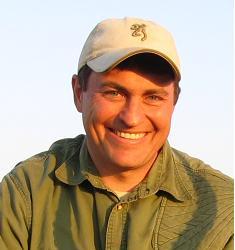How lucky I am; lucky to be able to listen and learn from global business and political leaders first hand. I’ve heard Colin Powell, Former Secretary of State, Donald Feinstein, Reagan’s Chief Economic Advisor and today Matt Simmons of Simmons & Company International, a leading investment banking firm focused on the energy industry.
Mr. Simmons is considered the 'high priest' of peak oil, is a member of the Council on Foreign Affairs and has written many books on the subject. His views are very provocative. For example, he suggested 500 – 700 might be the fair price for a barrel of oil. Now that’s provocative given oil is at $39 per barrel this week and down more than 70% in the last six months. Why? Because 90% of global oil rigs are 29 years old and will require trillions to repair and replace over the coming decades. Here is his presentation on surviving the post oil peak.
Speaking extemporaneously from notes, Mr. Simmons addressed the250 participants of the 2009 Oracle Oil & Gas Summit in Houston. His presentation covered many subjects from the ‘Rust’ issue and asset aging issue to the poor cost estimation of exploration to the aging workforce. With kids not far from college, the last point caught my interest.
I am very aware of the aging US workforce and I’m sure if I attended a healthcare conference or a manufacturing conference I would hear the same remarks – the high volume of baby boomers retiring will leave a huge talent vacuum and put America in a difficult economic situation. The Oil & Gas and Energy industries problem is more severe than others. Oil & Gas is the largest single industry on the planet and ²/з of their workforce is planning to retire in the next 5 years. Their geophysicists and thermal engineers average age is 59. American universities are not producing nearly the replacement power of the older generation.
Every industry goes through peaks and valleys on talent. In the 1980’s there was a strong demand for more accountants. In the 90’s we were paying web developers $150,000 to write HTML code. The 2000’s were all about financial engineering and Wall Street was enticing all the best and the brightest from American universities. Each generation has its unique talent needs and some important US industries are getting left behind. Unfortunately, countries like China and India have a very different demographic makeup and they are prepared to fill this global shortage.
What kind of engineers does America need? Engineers to invent clean energy, engineers to figure out more efficient ways to produce oil, engineers to reduce carbon emissions. You name it, we need more engineers. I can’t believe I’m saying that. I predict pocket protectors will be in vogue in 2020. What is a major twist on the needs of engineers for the future is they need to deeply understand their scientific field and understand business/finance. Mr. Simmons iterated this point many times.
When posed the question about alternative energy, Mr. Simmons spoke eloquently about how little green energy contributes to the increasing global demand for energy. This wasn’t new information but here’s what he said. “Globally, oil usage is 85 million barrels per day. At best, clean tech energy sources can (in the future) produce the equivalent of 7,000 barrels per day. That's less that 1/10 of 1%. This would include wind, geothermal, ethanol and nuclear combined.” Personally he believes offshore wind generation has great potential and this is why he sponsored a project off the coast of Maine to explore.
Mr. Simmons perspective on what to do was commonsense. He believes energy conservation is critical to sustaining this global crisis. He believes we need to travel less and consume goods made closer to home. He believes the 230 million US passenger fleet will not be replaced over night and likely not in the next 30-50 years. On the future of battery technology he flippantly said the best we can do is double the lifespan of laptop batteries. Funny but expected from an Oil man.
With kids less than 10 years from entering the workforce, his message really struck home. My hope for Parker and Hunter is that they learn about the different facets of science and that one field or another sparks their interest. I’m not convinced high school ‘guidance counselors’ have a clue about how to channel interests into careers. We haven’t begun this process with Parker yet and I hope I’m wrong on this topic.
In the coming years ahead, the most we can do at this stage of their lives is to expose them to many different professions (particularly those in strong demand) and let fate take its course. Fortunately I’ve developed great professional and personal relationships with leaders in many industries and they’re a phone call away from visiting their shop and discussing their profession. Many would be delighted to talk to young people about their work.
Now more than ever before, high school students need to think more about their interests and careers as the global market for talent is extremely competitive and there are serious imbalances among professions and industries.
Wednesday, April 22, 2009
Subscribe to:
Post Comments (Atom)




No comments:
Post a Comment